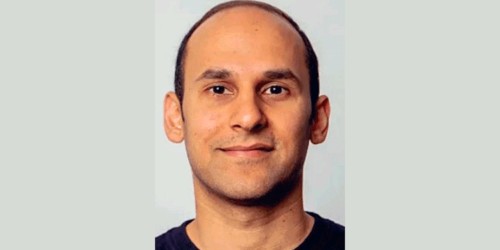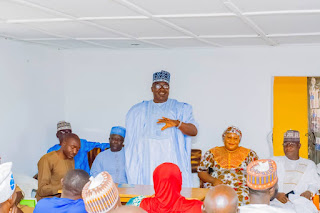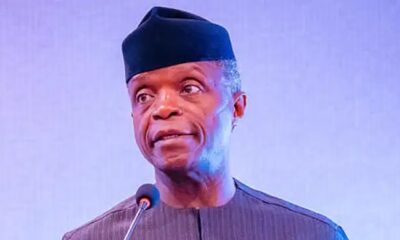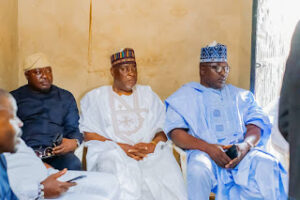One of the two Binance executives being held in Nigeria on suspicion of tax evasion and other offences, Nadeem Anjarwalla, has fled from detention.
Report has it that Anjarwalla, 38-years-old, managed to escape from the Abuja guest home where he and his companion were being held on Friday, March 22, according to sources. He was brought by the on-duty guards to a nearby mosque for prayers in keeping with the Ramadan fast.
The British citizen, who is also a Kenyan, is thought to have taken a Middle East plane out of Abuja.
It remains unclear how Mr Anjarwalla got on an international flight despite his British passport, with which he entered Nigeria, remaining in the custody of the Nigerian authorities.
Authorities are also said to be working to unravel his intended destination in a bid to get him back into custody.
An Immigration official said the Binance executive fled Nigeria on a Kenyan passport. He, however, said authorities were trying to determine how he obtained the passport, given that he had no other travel document (apart from the British passport) on him when he was taken into custody.
Another source said the two officials were held at a “comfortable guest house” and allowed many rights, including the use of telephones, a privilege Mr Anjarwalla is believed to have exploited to plot an escape.
When contacted Sunday night on the escape of the Binance executive from detention, the Head of Strategic Communication at the Office of the National Security Adviser, Zakari Mijinyawa, said he would enquire and revert. He has yet to do so as of the time of filing this report.
Mr Anjarwalla, Binance’s Africa regional manager, and Tigran Gambaryan, a US citizen overseeing financial crime compliance at the crypto exchange platform, were detained upon their arrival in Nigeria on 26 February 2024.
A criminal charge was filed against the two executives before a Magistrate Court in Abuja. On 28 February 2024, the court granted the Economic and Financial Crimes Commission (EFCC) an order to remand the duo for 14 days. The court also ordered Binance to provide the Nigerian government with the data/information of Nigerians trading on its platform.
Following Binance’s refusal to comply with the order, the court extended the remand of the officials for an additional 14 days to prevent them from tampering with evidence. The court then adjourned the case till 4 April 2024.
Also on 22 March, the Nigerian government approached the Federal High Court in Abuja and slammed another four-count charge on Binance Holdings Limited, Mr Anjarwalla and Mr Gambaryan, accusing them of offering services to subscribers on their platform while failing to register with the Federal Inland Revenue Service to pay all relevant taxes administered by the Service and in so doing, committed an offence, contrary to and punishable under Section 8 of the Value Added Tax Act of 1993 (as Amended).
The defendants were also accused of offering taxable services to subscribers on their trading platform while failing to issue invoices to those subscribers to determine and pay their value-added taxes and, in so doing, committed an offence contrary to and punishable under S.29 of the Value Added Tax Act of 1993 (as amended).
Count Three of the charges accused the three defendants of offering services to subscribers on their Binance trading platform for the buying and selling of cryptocurrencies and the remittance and transfer of those assets while failing to deduct the necessary Value Added Taxes arising from their operations and thereby committing an offence contrary to and punishable under Section 40 of the Federal Inland Revenue Service Establishment Act 2007 (as amended).
The last count of the charges wants the defendants punished for allegedly aiding and abetting subscribers on their Binance trading platform to unlawfully refuse to pay taxes or neglect to pay those taxes and, in so doing, committing an offence contrary to and punishable under the provisions of S.94 of the Companies Income Tax Act (as amended).
The Nigerian government had, in the past three months, been cracking down on suspected money launderers and terrorism financiers, some of whom it alleged are using the Binance platform for criminal activities.
The Nigerian government said over $21.6 billion was traded by Nigerians whose identities were concealed by Binance.
The government also claimed its investigations revealed that unscrupulous elements were using Binance for money laundering, terrorist financing, currency speculation and market manipulation, distorting the Nigerian economy and weakening the Naira against other currencies.
The detention of Binance officials in Nigeria began months after the crypto exchange platform pleaded guilty and agreed to pay $4.3 billion to settle criminal money laundering charges levied by the US Department of Justice.
Binance founder and CEO Changpeng Zhao, also known as CZ, pleaded guilty and agreed to resign. His criminal trial has been postponed to 30 April by a US court.
Credit: Premium Times

 BIG STORY5 days ago
BIG STORY5 days ago
 BIG STORY3 days ago
BIG STORY3 days ago
 BIG STORY4 days ago
BIG STORY4 days ago
 BIG STORY2 days ago
BIG STORY2 days ago
 BIG STORY4 days ago
BIG STORY4 days ago
 BIG STORY2 days ago
BIG STORY2 days ago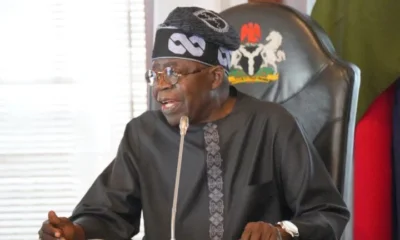
 BIG STORY4 days ago
BIG STORY4 days ago
 BIG STORY4 days ago
BIG STORY4 days ago




